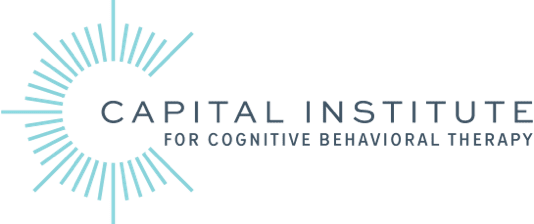Breaking the Cycle of Worry: How CBT Can Help Control Anxiety
“Everyday is an endless stream of worried thoughts about myself, other people, and the world.”
“I’m always trying to get ahead of my worries, if I could just plan and research enough, I could know that everything will be okay.”
“If I stopped worrying, I would probably not do as well at my job, or with my family. Worry is what makes me competent and productive.”
Do any of these thoughts sound familiar?
Excessive worry, fear, and stress can cast a shadow over even the most mundane aspects of life. For those grappling with anxiety disorders, these emotions become unwelcome companions, affecting daily activities and overall well-being. Cognitive Behavioral Therapy (CBT) can be transformative in breaking the cycle of worry. Discover how CBT techniques are effectively employed to identify and challenge anxious thought patterns, and reduce anxious behaviors, allowing individuals to regain control over their anxiety – and their lives.
Understanding Anxiety Disorders
Anxiety is a common human experience, but for individuals with anxiety disorders, the intensity and persistence of worry and fear can reach debilitating levels. Anxiety disorders can manifest in various forms, including panic attacks that can escalate rapidly as well as through physical symptoms such as restlessness, shortness of breath, palpitations, muscle aches, sweating, and insomnia. These symptoms often interfere with daily activities, leading to avoidance of specific places or situations that the person feels will increase their anxiety.
The interplay between anxiety and other mental health disorders, such as ADHD and depression, can further complicate the landscape of emotional well-being. To address this complexity, the Capital Institute of Cognitive Behavioral Therapy integrates other empirically supported treatments, such as Mindfulness and Acceptance and Commitment Therapy (ACT) and Dialectical Behavioral Therapy (DBT) approaches which recognize and address the interconnected nature of mental health conditions.
Examples of Anxiety Disorders Treated with CBT:
Generalized Anxiety Disorder (GAD): Characterized by excessive and uncontrollable worry about a variety of everyday concerns (e.g., finances, health, career, the future in general). GAD can be debilitating. CBT helps individuals identify and challenge the irrational thoughts driving this worry, providing tools to manage anxiety more effectively, and helps to change behaviors that exacerbate or support anxiety.
Panic Disorder: Recurrent, unexpected panic attacks that are accompanied by worry and behavioral changes related to fear of future attacks. Panic attacks are exhibited by intense discomfort, with physical symptoms including heart palpitations, sweating, and shortness of breath. Individuals with panic disorder experience cognitive and behavioral symptoms, such as catastrophic misinterpretations of their symptoms as dangerous (e.g., “my heart pounding means I will have a heart attack”) and avoidance of situations or sensations that induce panic. CBT treatments thus target these symptoms.
Agoraphobia: Fear of a public or crowded place, from which a potential escape is difficult, or help may not be readily available. The fear is often fueled by the idea that a panic attack or panic-like symptoms may occur in these situations. Individuals with agoraphobia, therefore, strive to avoid such situations or locations. CBT assists individuals in gradually facing and overcoming these fears through exposure therapy and cognitive restructuring.
Obsessive-compulsive disorder (OCD): Obsessions (i.e., unwanted thoughts or images that are intrusive in nature) and compulsions (i.e., actions or mental behaviors that are performed in a rule-like manner to neutralize/negate the obsession) that are time-consuming and distressing and can interfere with daily life. The gold-standard CBT treatment for OCD is exposure and response prevention therapy (ERP).
- Health Anxiety: Excessive worry about having a serious medical condition. CBT helps individuals confront and challenge irrational health-related fears, engaging in exposure therapy and cognitive restructuring to foster a more balanced and realistic perspective.
Specific Phobia: Fear or anxiety about a specific object or situation (e.g., flying, heights, animals, receiving an injection, seeing blood) that usually poses little or no actual danger. Having to face the object or situation brings about an immediate reaction, causing the person to endure intense anxiety or avoid the object or situation entirely. CBT involves gradual exposure combined with other ways to learn how to view and cope with the feared object or situation differently.
Social Anxiety Disorder: Intense fear of being judged or rejected in social situations and is accompanied by anxiety and avoidance of interpersonal interactions. CBT interventions focus on changing negative thought patterns, improving social skills, and gradually exposing individuals to feared social scenarios.
Posttraumatic stress disorder (PTSD): Can arise after a traumatic event in which an individual directly experiences, witnesses, or learns about the actual or threatened death, serious injury, or sexual violence toward a loved one. An individual with PTSD may experience intrusion symptoms (e.g., upsetting dreams or flashbacks of the event), avoidance of reminders of the event, changes in cognitions and affect (e.g., distorted beliefs about oneself, others, and the world), and changes in physiological arousal (e.g., jumpiness, irritability). CBT treatment for PTSD involves targeting the cognitive and behavioral symptoms that maintain the disorder.
Therapy Tailored for You
Anxiety can be exhausting. CBT is an effective, evidence-based treatment for anxiety and stress-related disorders. CBT uses specific techniques to target unhelpful thoughts, feelings, and behaviors shown to generate and maintain anxiety. If you experience any of these symptoms, we are here to help. Our clinicians in our Bethesda, MD office offer services to children, adolescents, and adults. We also see older teens and adults in our downtown DC location.
Schedule a consultation with us today to explore CBT treatment, answer your questions, and tell us about your goals for a calmer, more resilient life.
